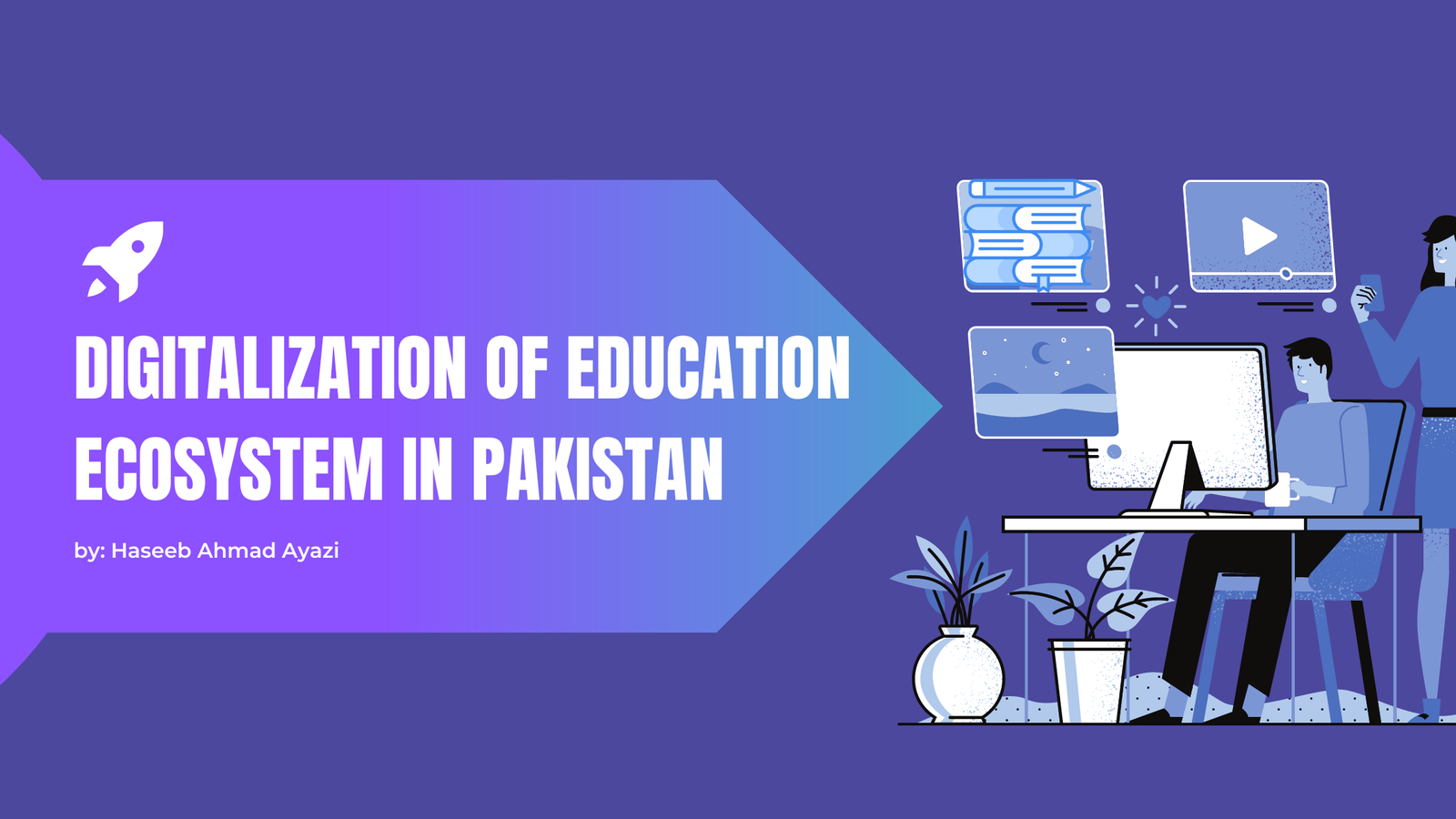Digitalization in the education ecosystem refers to using digital technologies to enhance teaching and learning processes, student assessment, and administrative processes.

Digitalization is the process of converting physical assets, documents, or services into digital form. In recent years, the education ecosystem in Pakistan has undergone significant changes, and one of the most significant changes is the digitalization of education.
The pandemic has accelerated the pace of digitalization in education, making it imperative for schools, colleges, and universities to adopt digital technologies to continue educating students remotely. This article will explore the digitalization of the education ecosystem in Pakistan, its challenges, and the way forward.
Digitalization of the Education Ecosystem
Digitalization in the education ecosystem refers to using digital technologies to enhance teaching and learning processes, student assessment, and administrative processes. In Pakistan, the education ecosystem has seen a significant shift from traditional classroom teaching to online learning.
The pandemic has forced educational institutions to adopt digital technologies to continue educating students remotely. As a result, schools, colleges, and universities have been forced to adopt digital platforms such as Learning Management Systems (LMS), video conferencing tools, and digital content creation tools.
Challenges
Despite the significant benefits of digitalization in education, it also comes with several challenges. One of the most significant challenges is the lack of infrastructure and internet connectivity. In Pakistan, a large number of students come from rural areas where access to the internet and digital devices is limited.
Therefore, it is challenging for students in these areas to access digital education resources. Additionally, digital literacy is also a significant challenge, as many students and teachers lack the necessary skills to effectively use digital tools for teaching and learning.
Another challenge is the lack of digital content in Urdu, Pakistan’s national language. Most of the digital content available for education is in English, making it difficult for students who are not proficient in the language to understand and learn effectively. Additionally, there is a lack of standardization in digital education. Different schools, colleges, and universities use different digital tools, which can be confusing for students and parents.
Way Forward
To address the challenges of digitalization in the education ecosystem, the government, educational institutions, and private organizations need to work together. The government can provide infrastructure and internet connectivity to rural areas to ensure that all students have access to digital education resources. Additionally, the government can also invest in creating digital content in Urdu to make it more accessible to students.
Educational institutions need to provide digital literacy training to students and teachers to ensure that they can effectively use digital tools for teaching and learning. Moreover, institutions need to standardize the use of digital tools to make it easier for students and parents to navigate the digital ecosystem.
Private organizations can also play a vital role in supporting digitalization in education. They can invest in creating digital content in Urdu, providing digital devices to students, and sponsoring digital literacy programs in schools and colleges.
Conclusion
Digitalization has the potential to transform the education ecosystem in Pakistan. However, to realize its full potential, the government, educational institutions, and private organizations need to work together to overcome the challenges of digitalization.
By providing infrastructure, internet connectivity, and digital literacy training, we can ensure that all students have access to digital education resources and can learn effectively in a digital environment.
